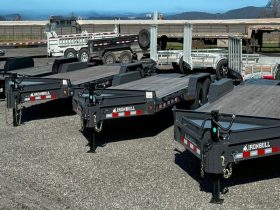Opening a free zone company in Turkey offers several benefits for businesses operating in such special trading areas. Consequently, incorporating in free zones may be particularly enticing for businesses whose operations in Turkey are (or will be) suited for functioning within a free zone. It is especially true if the business does not sell to the Turkish market but uses its facility in the free zone to fulfil orders from clients in other countries.
How to Establish a Free Zone Business in Turkey?
The Turkish Commercial Code permits businesses to form free zone firms. A limited company (LLC) can have up to 50 shareholders and must have at least one partner, who may be a real person or a legal entity. It is the case if you decide to set up your business as a limited company. Both Turkish and non-Turkish individuals may be partners.
100% ownership by foreigners is not an issue, and they are free to move their revenues outside of Turkey. A Limited Liability Company must have at least 10,000 in the capital (Turkish lira). The company’s capital must be paid in up to four parts over a period of two years.
Experts from FO-consultancy are available to help your free zone business establish itself in Turkey. Lawyers for business formation in Turkey have experience with limited corporations, joint stock companies, liaison offices, branch offices, and free trade zones.
Procedures for Setting Up a Free Zone Company in Turkey:
- Notarization and translation of partners’ passports
- Obtaining the partners’ tax identification numbers
- Obtaining the partners’ power of attorney for company formation before a public notary
- Choosing and reserving the company’s name
- Signing a lease agreement for the company’s location
- Preparing online business formation procedures
- Registering a company online with the Istanbul Chamber of Commerce
- Submitting and obtaining approval of a company’s articles of incorporation online
- Filing all necessary paperwork with the Istanbul Chamber of Commerce and paying the official company registration fees
- Getting a certificate of company registration from the Istanbul Chamber of Commerce
- Notarizing signature circular at Notary Public
- Granting an accountant power of attorney on the company’s behalf
- Opening a bank account for the company
Operating Licence for a Free Trade Zone Company
In Turkey, you require an Operating Licence issued by the Ministry of Trade to conduct business in a free zone company. A rental agreement must be signed with the Free Zone Operating Company by the businesses that have been approved for an operating licence and want to rent an open area.
Tax Incentives for Free Trade Zone Businesses
- Social security taxes do not apply to production businesses in a Free Trade Zone
- Customs duties are not applied to imported goods. The age or model of machinery imported overseas is also unrestricted, and these items are not subject to VAT or customs duties
- VAT is not applied to purchases made in Turkey by businesses based in Free Trade Zones. Companies based in a Free Trade Zone are permitted to export goods in lots at any time and to retain their goods in a designated duty-free storage area for an indeterminate amount of time
- Within a zone, energy, water, and phone utilities are all free of special consumption tax (OTV) and VAT
Holders of free zone operating licences must adhere to the regulations at all times; failure to do so may result in the loss of their operating permits. Therefore, having legal counsel on your side who is knowledgeable about free zones and free zone administrations is crucial both before and after the incorporation.
Considering to expand into Turkey? If you’re a local business in Singapore, the government has several initiatives that can help local companies to expand into other countries. Engage with CZ Consultancy and start expanding business overseas today.













